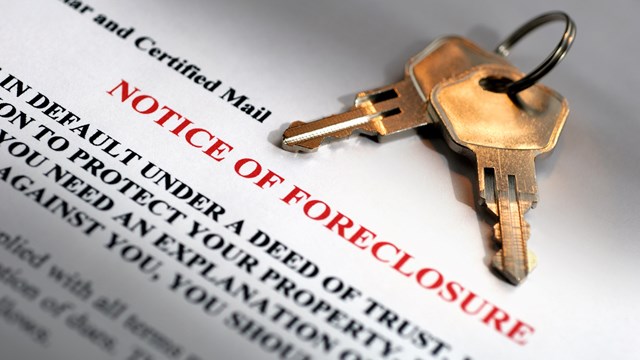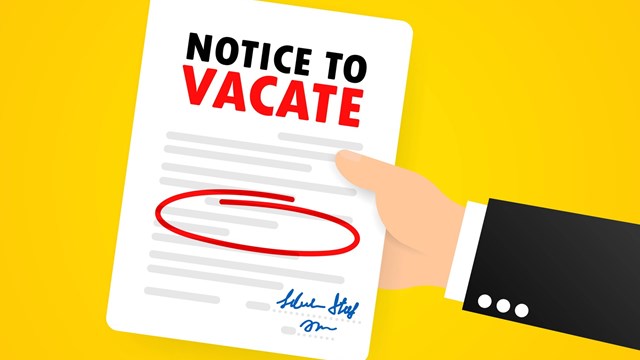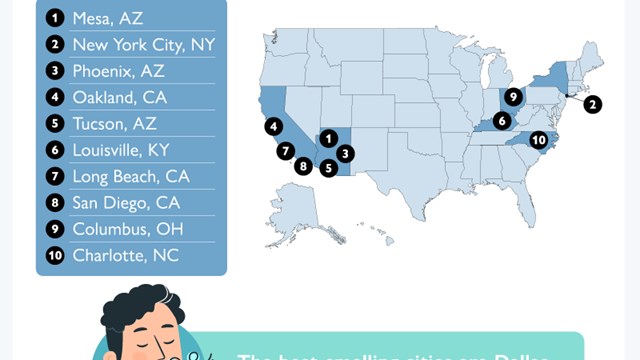In recent years, “home-sharing” or “short-term” rental sites have been experiencing increasing popularity as well as political and media attention in many so-called destination cities. At the time of this article, the most popular of these websites, San Francisco-based Airbnb, boasts over 60 million guests and two million listings worldwide. Founded in 2008, Airbnb makes the list of Fortune.com’s most anticipated IPOs of 2017 with a valuation of about $30 billion, according to Reuters. With figures like these from a company that has not even been a decade in the business, it seems safe to say that this home-sharing ‘trend’ is not going to disappear.
Responses to the home-sharing economy across the country have made it clear that these sites are having a larger impact on the surrounding community than those benefiting from the arrangement might anticipate, or fully comprehend. Property owners and people seeking long-term apartments or homes to rent in cities where tourism plays a major role in the local economy are identifying these websites – accurately or not – as major contributors to gentrification and housing shortages, spurring political action on a local level like 2015’s Prop F in San Francisco, and similar initiatives in cities as far apart as New Orleans and Berlin.
But the complaints against this new industry are as unique as the cities themselves in which they are playing out. Co-ops and condos have a unique set of concerns when it comes to the home-sharing economy. To better understand how and why boards and building managers need to respond quickly, this article will focus on illuminating the issue of home-sharing in multi-dwelling buildings in New York, hopefully providing useful information to present to multifamily community administrators across the spectrum as they seek to serve their residents while considering how to resolve the conflicts brought up by home-sharing.
Black and White: The Law Says No
Short-term rentals and home-sharing add to the already extensive responsibilities resting on both board members and property managers, and can complicate the execution of other necessary management responsibilities. “There’s no transparency, and it’s impossible to track,” says Jay Nadler, senior property manager for Veritas Property Management in Manhattan. “When I am asked to attempt to track these activities, it takes away from my other duties.”
Even with pressures from both state and local governments, as well as knowing they’re in violation of their building’s bylaws and agreements, many co-op and condo residents persist in using sites like Airbnb, simply because if you have a clean, convenient apartment in the heart of a major destination city, the income to be gained from renting it out to visitors may be just too good to pass up. But many shareholders who participate in these sites aren’t knowledgeably factoring the high risk they are taking, should something go wrong. Nor do most home-sharing ‘hosts’ have a clear understanding of what the law currently says, and how they may be in direct violation by continuing to enter into short-term rental agreements.
According to Stephen M. Lasser, Managing Partner of Lasser Law Group, in New York, “In response to the growing popularity of home-sharing sites and the related safety and quality of life issues they sometimes create, the New York legislature passed a law in 2010 called the New York Multiple Dwelling Law Section 4.8, which prohibits rentals for less than 30 days in buildings with three or more apartments.”
Despite the law’s passage, these transactions persisted, leading to more explicit recent legal action against such sites on a state level. “Because of individuals continuing to utilize home-sharing sites in violation of Section 4.8,” says Lasser, “the New York legislature beefed it up by adding a new section to the law in October 2016: New York Multiple Dwelling Law Section 121. Section 121 makes it illegal to even advertise rentals under 30 days in length, and subjects offenders to fines ranging from $1,000 to $7,500.”
So far, however, even after these laws have gone through, hundreds of listings for short-term rentals in New York City remain active on multiple home-sharing sites. That may give shareholders and unit owners a false sense of security around the issue, but in fact, the opposite might be true.
Adam Leitman Bailey, a real estate attorney based in Manhattan, has been one of the leading attorneys in high-profile cases against the Airbnb trend in New York. “For reasons I cannot understand,” he says, “both the city and state have agreed to not go after Airbnb for these fines, and the websites are not held accountable. The government is currently choosing to only go after shareholders – not the businesses associated with these transactions.”
This approach could be incredibly detrimental to shareholders who are caught violating these local and state laws, many of whom turn to home-sharing because of larger financial hardship situations. With an awareness of the reality of these fines landing solely on the home-sharing host, rather than the home-sharing platform itself, many residents toying with the idea of monetizing their apartment might decide that the risk outweighs the benefits.
Beyond the Law: Bylaws and Illegal Subletting
Illegal subletting in New York is an issue that extends far beyond the relatively recent trend of short-term rental websites. Even without the city and state weighing in, many individual co-op and condo buildings have strict subletting guidelines that short-term rentals explicitly violate. Jeffrey Futoran, who has served as the board president for a 275-unit building in Queens for six years says, “My building does not permit Airbnb. There is a process in place in my building for strict, legal subletting agreements at one-year terms. In addition to violating our bylaws, illegal short-term leasing leads to less control over who is in the building. These illegal sublets skip many important checks and balances surrounding common sublet concerns addressed in our legal sublet process.”
When a legal sublet request or application is submitted, many boards require the prospective sub-letter to meet a series of standards, including financial stability and criminal record checks, all of which lead to a more thoroughly vetted individual – and presumably less chance of bringing an insolvent or otherwise problematic resident into the building.
By contrast, short-term rental websites tend to offer little in the way of participant vetting on either end, other than a peer review process and some form of community standards agreement. Nadler acknowledges that one of the reasons for this might be that the subletting structure currently in place makes these types of situations nearly impossible to execute officially. “All condos and co-ops have sublet fees set up, and people don’t want to do the paperwork. It’s not an easy thing to do, as far as protocol goes, and it’s not a fast process. There’s no fast-line process, at least not yet.”
Unanticipated Effects on Investment
Many factors contribute to property value, and in the case of multifamily co-ops and condos, we’re all in this together. Communal accountability is an important consideration when addressing a shareholder who’s using Airbnb for short-term financial gain. Raising awareness about not only the legal violation itself, but its potentially damaging side-effects to fellow shareholders and community may be the best way to address the issue while the specifics of these dynamics are worked out in the courts.
Shareholders who are willing to risk the short-term financial penalties in place may not have fully considered the potential damage to the long-term investment that is their share of the property. According to Lasser, “A major concern caused by homesharing is the decrease in quality of life for other residents. Transient occupants have less incentive to be a good neighbor than someone who permanently resides in the building. As result, a transient resident is more likely to cause property damage in a building’s common area, and more likely to be unconcerned about disturbing a neighbor with secondhand smoke or noises in the middle of the night.”
Futoran points out that increased rental percentages in a building could affect the mortgage rate for all co-op residents, “The banks determine mortgage rates based on the percentage of rentals versus private units in some of the larger buildings. If the co-op management office is asked by the banks how many properties in the building are rentals, and Airbnb rentals are taken into consideration, the percentage shift could affect all of the shareholders’ ability to refinance.”
Liability Issues: Insurance Battles in The Making
Yet another factor for those who persist in engaging in risky short-term rentals to consider: personal liability. Property damage aside, a non-resident, paying guest would present a major problem if they were to be injured in some way on building property.
“If New York State says it’s illegal and someone who is found to be in an illegal agreement with a shareholder” were to take some sort of legal action against the co-op or condo, says Nadler, “it could really put handcuffs on any kind of litigation, and the responsibility will fall on the building itself.”
Bailey points out that residents may be surprised that in the case of damages of any kind, most hosts would have little recourse with the website itself, “ The number one issue to consider is that most residents don’t have proper hotel insurance,” he says. “If there’s a case involving property damage or even assault, the shareholder will have little recourse. Airbnb does not have their own insurance protecting people. When you’re allowing a stranger into your home, bad things can happen.”
Lasser agrees. “There is typically no substantive screening process for the transient occupants who use home-sharing sites. They could be individuals with criminal histories that pose a threat to the personal safety and personal property of the other residents of the building.”
And, Lasser adds, “A second issue is the safety and well-being of the transient occupants themselves, who may not be familiar with the emergency exits in a short-term rental apartment. Due to the transient nature of their occupancy, hotels have extra fire safety features in place that are not required in multiple dwellings where short-term apartment rentals occur.”
Co-ops vs Condos: Different Legal Pathways
In New York, both co-ops and condos generally prohibit short-term rentals and home-sharing if the unit owner or shareholder isn’t present in the apartment while the guest is staying there. If a shareholder puts the board or management company in the unfortunate position of beginning an eviction process, the difference between co-ops and condos can make a big difference in expediency of process. “The main difference between co-ops and condos is the enforcement mechanisms available,” says Lasser. “In a co-op, there is a landlord-tenant relationship between the cooperative corporation and its shareholders. Thus, if a shareholder violates the co-op’s proprietary lease or applicable New York law, there is a basis for the cooperative corporation to evict the shareholder in housing court. In a condo, there is no landlord-tenant relationship available, so home-sharing disputes would have to be litigated in NY State Supreme Court, which can be much more expensive and time-consuming.”
Is There an Upside? Looking to the Future
The success of online and international businesses seems to indicate that in the long term, this trend is not going to disappear. Thinking about how home-sharing could work to benefit a multi-dwelling building could put a savvy manager or board ahead of the game. “If buildings could manage to come up with a way to officially allow these short-term agreements, the building could potentially share in the profits of these practices,” says Futoran.
“On my end, I kind of like the idea,” says Nadler. “It’s not easy to get a long-term winter sublet in New York, and short-term rentals would be a great way to fill that void. Obviously, money can solve a lot of problems. I think if someone was willing to put up a significant deposit, boards may be able to get on board. There’s a lot of work to be done here”
It can be difficult to monitor the presence of these paying guests without altering an entire building culture, but the trend could certainly benefit from a better understanding of the risks involved and a focus on creating solutions, reassessing communal standards and new ways of addressing and enforcing building bylaws surrounding the ongoing issue of short-term subletting from a management and board perspective. As with most contentious community issues, building community awareness around not only the legal violation itself, but the potentially damaging effects of violating such laws to the shareholders and community may be the best way to address the issue while the specifics of these dynamics are worked out in the courts.
Kristina Valada-Viars is a freelance writer and frequent contributor to The Cooperator.










Leave a Comment